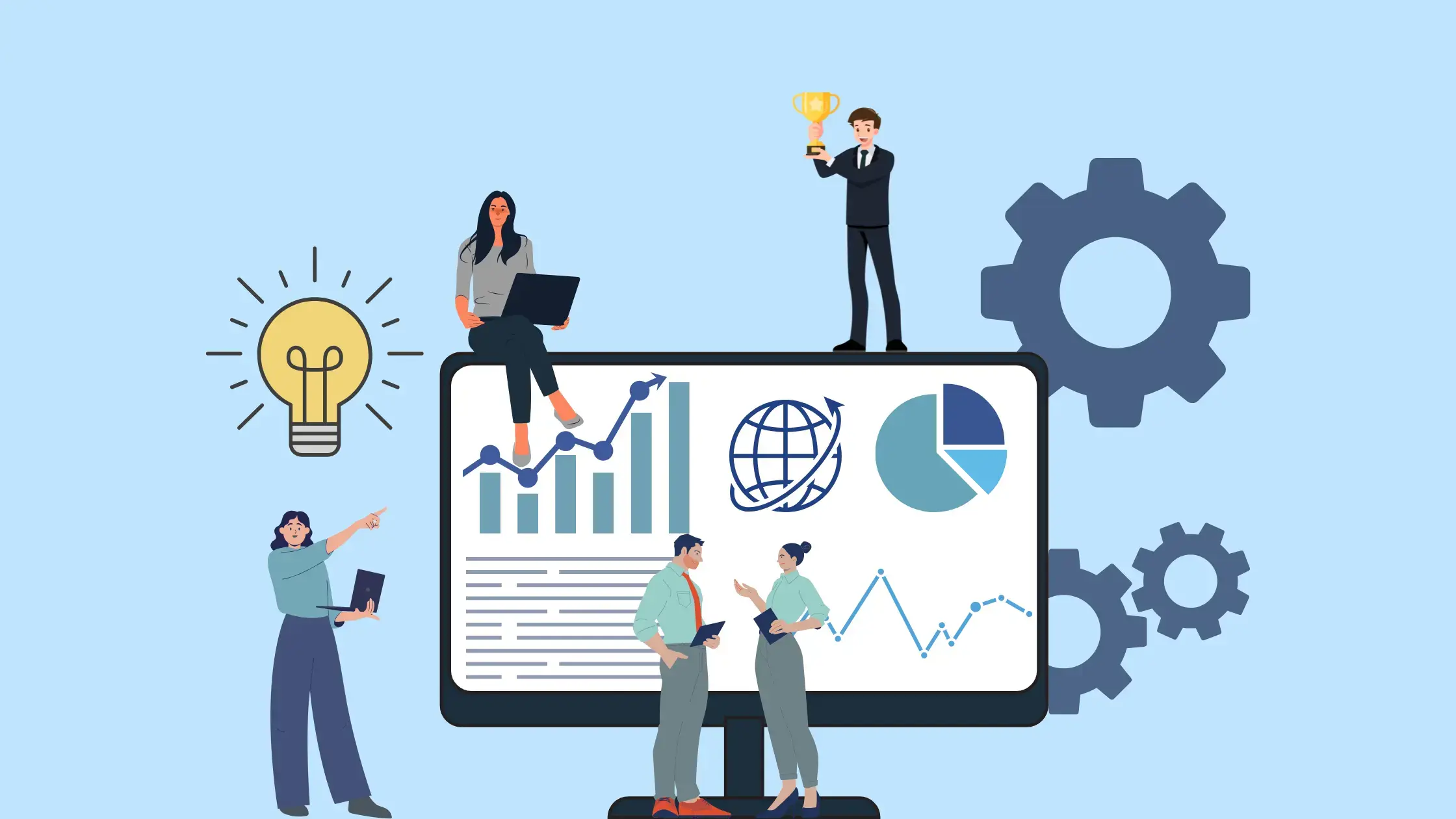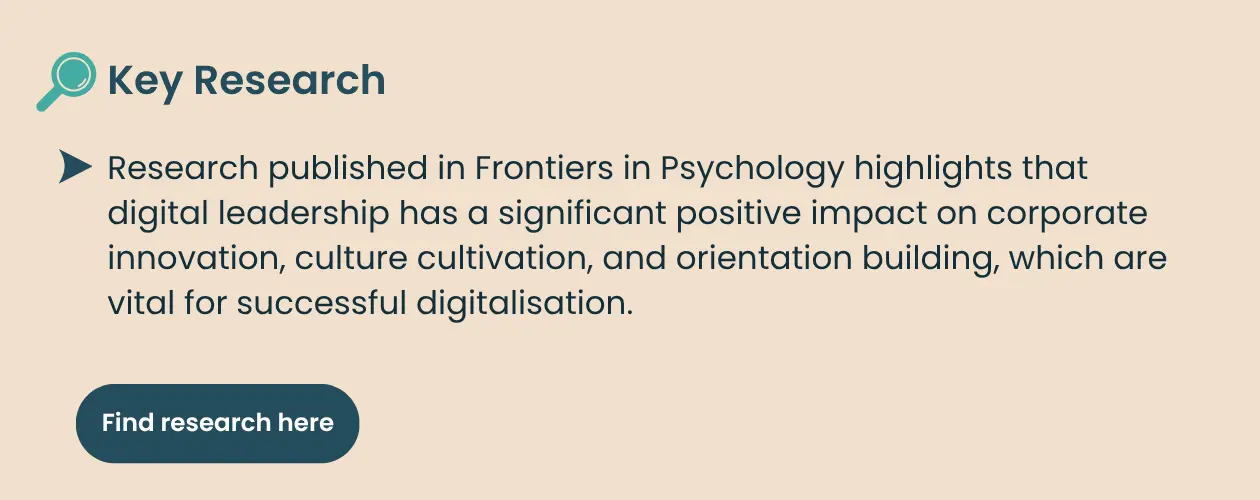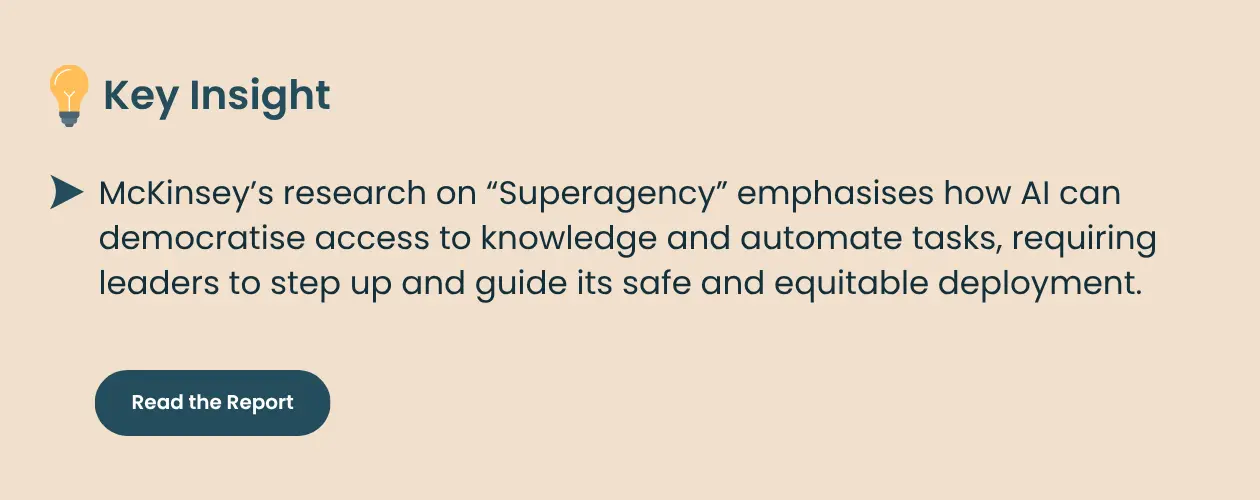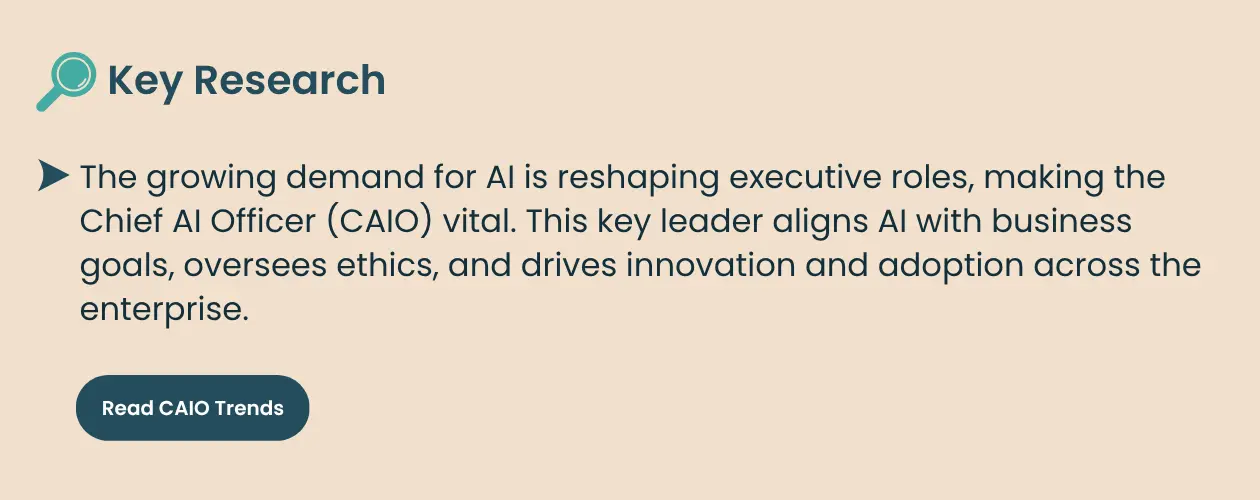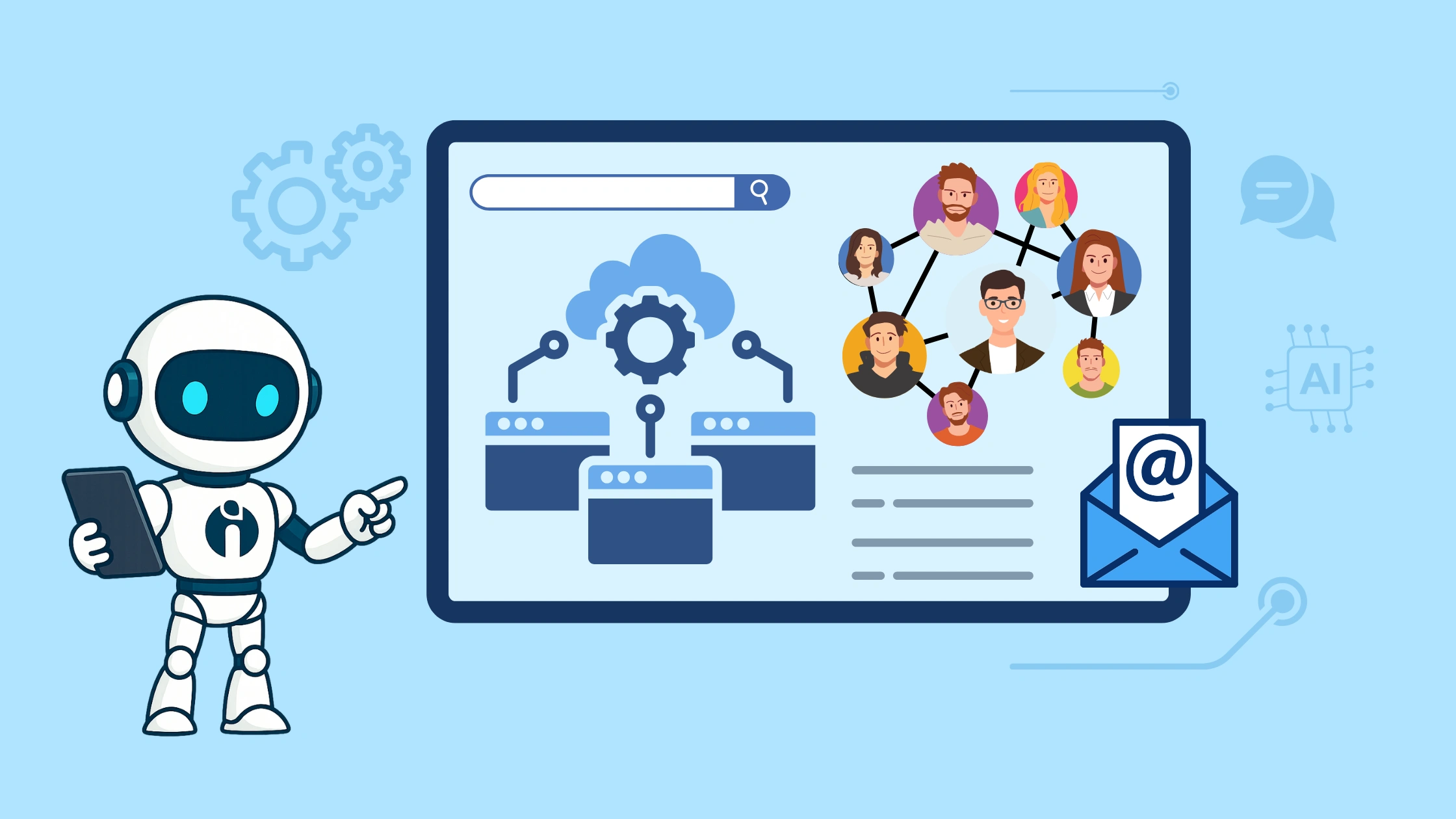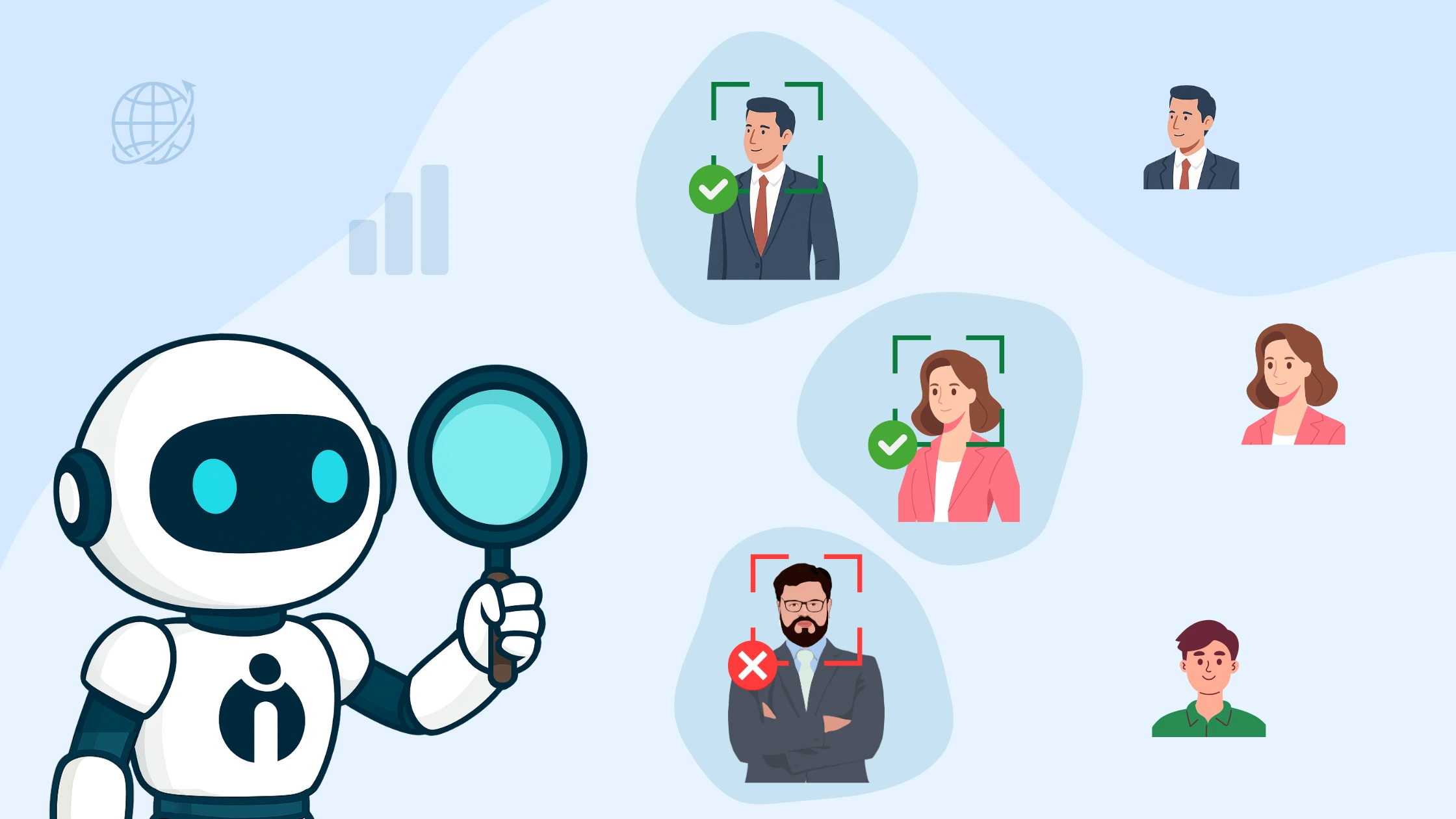TL;DR
- Effective leadership requires a broad set of competencies across behavioural, strategic, transformational, and digital domains.
- Over 100 leadership competencies are grouped into categories such as behavioural skills, strategic growth, organisational transformation, global leadership, performance, digital & AI, talent nurturing, governance, and niche sectors.
- Key behavioural traits include emotional resilience, inclusiveness, and psychological safety, while strategic competencies focus on execution, innovation, and market expansion.
- Organisational transformation leaders drive agility, change enablement, and digital operating models, with global leaders excelling in cross-cultural communication and international expansion.
- Performance-driven leaders focus on measurable outcomes, commercial acumen, and growth hacking, while digital leadership includes AI strategy, innovation, and cyber resilience.
- Talent and culture competencies foster engagement, workforce readiness, and succession planning; governance emphasises ethical leadership, ESG, and stakeholder trust.
- Specialised sector knowledge in areas like HealthTech, LegalTech, and AgriTech adds competitive advantage to leadership capabilities.
In today's relentless business environment, merely having "leaders" isn't enough to thrive. The organisations truly making waves – those that ignite innovation, cultivate vibrant cultures, and consistently achieve unparalleled performance – are powered by honed leadership competencies. It's no longer about a few innate traits; it's about a comprehensive toolkit of leadership capabilities and behaviours that empower individuals to lead effectively at every level. Dive into this essential guide to discover over 100+ leadership competencies and skills crucial for navigating tomorrow's challenges and opportunities.
Definitive Breakdown of 100+ Modern Leadership Competencies
Let's break down the 100+ pivotal leadership competency categories that are shaping success in the modern business landscape.
1) Behavioural Leadership Competencies
At the heart of impactful leadership lies a strong behavioural foundation. These leader competencies dictate how leaders interact with others, build relationships, and navigate complex human dynamics. The emphasis on emotional intelligence, empathy, and inclusiveness is now more pronounced than ever.
1. Inclusive Leader
Actively seeks and values diverse perspectives, ensuring everyone feels heard and respected, fostering an environment where all team members feel they belong and can contribute their unique insights.
2. Servant Leader
Prioritises the growth and well-being of their team members above their own interests, fostering an environment of trust, loyalty, and mutual support by serving and empowering others.
3. Strategic Influencer
Possesses the ability to inspire, persuade, and guide stakeholders, both internal and external, towards a desired vision or outcome through compelling communication and insightful arguments.
4. Collaborative Leader
Excels at fostering effective teamwork across functions and departments, creating synergy and mobilising collective effort towards shared goals, especially vital in hybrid and remote team structures.
5. Inspirational Coach
Doesn't just delegate tasks but mentors and develops team members, guiding them to unlock their full potential and connecting their daily work to a larger, motivating vision.
6. Purpose-Driven
Leads with a strong sense of mission and values, embedding meaning into the work and inspiring others by clearly articulating the "why" behind the organisation's existence and efforts. This aligns with a strong trend where Gen Z employees, in particular, seek purpose-driven work; a significant portion of Gen Zers see purpose as pivotal to their overall well-being and job satisfaction.
7. Resilient Under Pressure
Maintains composure, clarity, and effectiveness when facing intense stress, tight deadlines, or high-stakes situations, allowing them to make sound decisions without succumbing to panic.
8. Emotionally Resilient
Possesses the capacity to bounce back from setbacks, manage their own emotions effectively, and recover from adversity with strength and a growth mindset.
9. Radical Candour
Embodies the philosophy of "caring personally while challenging directly," fosters honest, open feedback that helps individuals and teams improve rapidly without unnecessary friction or resentment.
10. Courageous Decision-Maker
Demonstrates the fortitude to make tough, sometimes unpopular, decisions in ambiguity or high-risk situations, preventing stagnation and ensuring progress even when the path forward is uncertain.
11. Cultural Intelligence
Understands and effectively adapts to diverse cultural contexts, navigating cross-cultural interactions with sensitivity and skill in an increasingly globalised world.
12. Boundary Spanner
Connects different teams, departments, or organisations, facilitating collaboration and information flow across traditional silos to achieve broader organisational goals.
13. Empathy-led Decision Making
Makes decisions by deeply understanding and considering the feelings, needs, and perspectives of others, leading to more humane and sustainable outcomes.
14. Humble Leadership
Possesses self-awareness and intellectual curiosity, acknowledging their own limitations, seeking input from others, and fostering an environment of continuous learning and growth.
15. Psychological Safety Champion
Actively cultivates an environment where individuals feel safe to speak up, ask questions, experiment, take risks, even fail without fear of judgment or retribution, which is the cornerstone of innovation.
McKinsey survey found that an overwhelming 89% of employees believe psychological safety in the workplace is essential, directly contributing to team effectiveness, learning, and better performance. You can read the full research here.
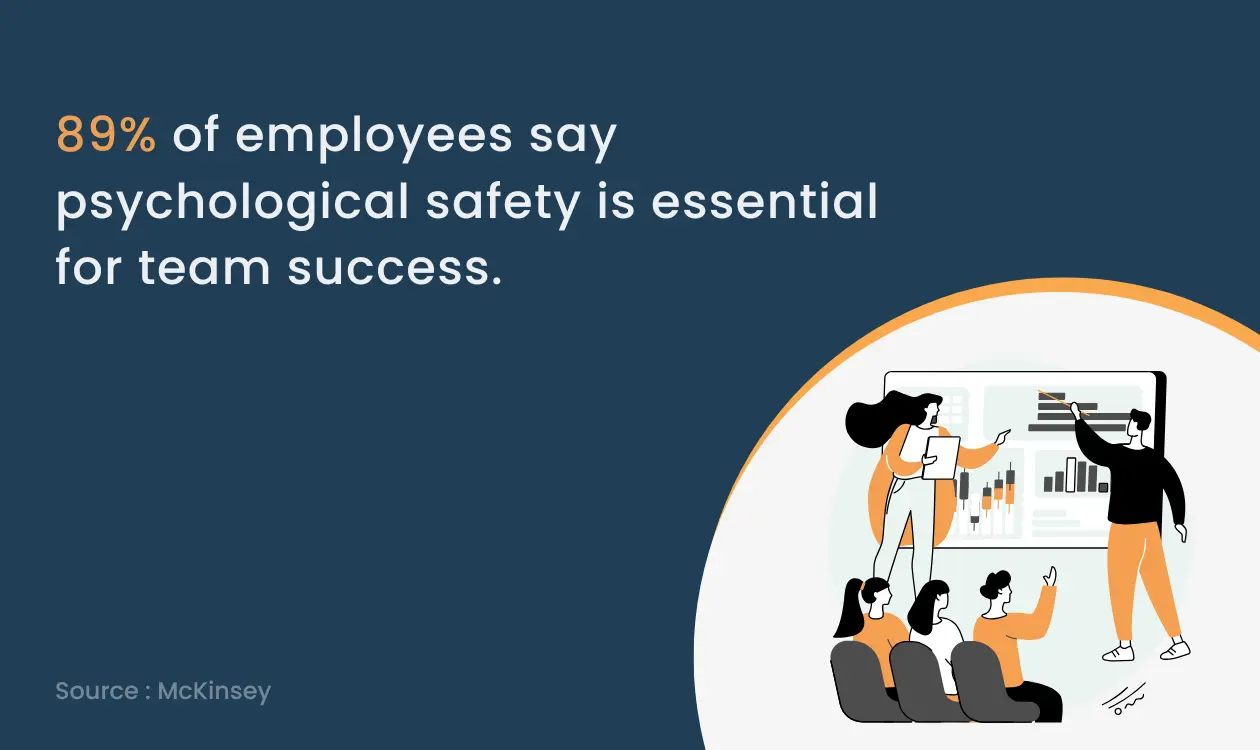
16. Strategic Storyteller
Masters the art of articulating vision, complex strategies, and organisational purpose through compelling narratives, building shared understanding and inspiring action across all levels of the organisation.
17. Active Listening
Fully concentrates on, understands, responds to, and remembers what is being said, both verbally and non-verbally, fostering trust and ensuring clear communication.
18. Conflict Resolution
Skillfully mediating disputes and fostering harmonious team dynamics.
2) Strategic Leadership Competencies for Growth
Beyond people skills, leaders must possess a keen understanding of the business landscape and the ability to shape its future. Executive search firms, like those represented by the Association of Executive Search and Leadership Consultants (AESC.org), consistently emphasise these strategic proficiencies when advising on top-tier placements, reflecting their importance as competencies for executives in global talent acquisition. For comprehensive information on Executive Search, you can review our content.
1. Strategic Execution
Transforms grand visions and long-term plans into concrete, actionable steps and ensures consistent, effective implementation across the organisation to achieve desired outcomes.
2. Operating Model Design
Possesses the ability to design and optimise organisational structures, processes, and systems to ensure efficient delivery, adaptability, and alignment with strategic objectives.
3. Business Model Innovation
Continuously seeks novel ways to redefine how the organisation creates, delivers, and captures value, adapting to market shifts and leveraging new opportunities.
4. Value Creation Leader
Focuses relentlessly on identifying and maximising sources of value for customers, stakeholders, and the organisation, ensuring sustainable growth and competitive advantage.
5. Boardroom Communication
Effectively articulates complex business insights, challenges, and strategic recommendations to a board of directors, fostering trust and enabling informed governance decisions.
6. Shareholder Value Focus
Strategically prioritises decisions and actions that enhance long-term value for shareholders while balancing the needs of other stakeholders.
7. Market Entry Strategy
Develops and executes comprehensive plans for successfully entering new geographic or product markets, navigating competitive landscapes and regulatory requirements.
8. New Market Penetration
Possesses the skills and experience to effectively establish and grow market share in untapped or emerging markets, unlocking significant growth opportunities.
9. Vertical Integration Expertise
Understands and can execute strategies to bring different stages of a supply chain or production process in-house, enhancing control and efficiency.
10. Blue Ocean Strategy
Drives the creation of new, uncontested market space, making the competition irrelevant by innovating value for customers in novel ways.
11. Long-Term Value Planning
Develops and implements strategies that focus on sustainable success and competitive advantage far beyond immediate gains, considering future trends and potential disruptions.
12. Digital Revenue Model Expertise
Possesses a deep understanding and practical experience in identifying, developing, and leveraging various digital channels and models to generate revenue and drive business growth.
13. Scenario Planning
The ability to anticipate future challenges and opportunities by developing multiple potential future scenarios and strategic responses. Our insights on the search process can help.
3) Organisational Transformation Leadership Competencies
In today's accelerating world, change is constant. Leaders must be both architects and enablers of transformation. With digital transformation posing significant challenges, highly skilled leaders are critically needed. The focus is increasingly on "Leadership Ambidexterity" – the crucial ability to manage current operations efficiently while innovating for the future. These are unequivocally top leadership competencies.
1. Enterprise Agility
Cultivates the organisational capacity to adapt quickly and effectively to dynamic market conditions, technological shifts, and evolving customer demands, ensuring rapid response and continuous innovation.
2. Change Enablement
Manages the human side of organisational change, guiding individuals and teams through transitions, mitigating resistance, and fostering adoption of new ways of working. Leaders must be agile and adaptable, pivoting strategies in response to dynamic circumstances.
3. Lean Enterprise Architect
Designs and optimises processes, systems, and structures to eliminate waste, maximise efficiency, and deliver value effectively throughout the organisation.
4. Continuous Improvement Mindset
Instils a culture of ongoing betterment, where individuals and teams are empowered and encouraged to constantly seek ways to enhance processes, products, and services.
5. Process Optimisation Champion
Leads initiatives to streamline workflows, reduce bottlenecks, and enhance efficiency across operational processes to improve overall productivity and resource utilisation.
6. Agile Ways of Working
Champions and implements agile methodologies (e.g., Scrum, Kanban) across teams and departments, fostering iterative development, rapid feedback loops, and cross-functional collaboration.
7. Digital Operating Model Leader
Leads the strategic transition and successful implementation of digital-first operating models, leveraging technology to streamline operations, enhance customer experience, and drive efficiency.
8. Turnaround Strategist
Possesses the expertise to diagnose the root causes of underperformance in struggling organisations or business units and formulate bold, effective strategies to restore profitability and stability.
9. Technology Modernisation Leader
Guides the organisation through the strategic adoption and implementation of new, updated technologies to replace legacy systems, enhancing efficiency, security, and competitiveness.
10. Enterprise Restructuring
Manages the complex process of reorganising an entire enterprise, including realigning structures, functions, and resources to improve efficiency, reduce costs, or refocus strategic direction.
11. Agile-at-Scale Implementation
Successfully scales agile practices beyond individual teams to large, complex organisations, ensuring consistency, coordination, and alignment across multiple agile initiatives.
12. Customer-centric Transformation
Deeply embeds customer needs, insights, and feedback into every aspect of organisational operations, culture, and strategy, defining a leading-edge approach to transformation.
13. Digital Ethics & Compliance Leadership
Guides the ethical and compliant use of digital technologies, ensuring that data practices, AI applications, and digital transformations adhere to legal and moral standards.
4) Global Leadership Competencies
In an interconnected world, global acumen is no longer a niche skill. Organisations seeking global expansion rely heavily on leaders who can bridge cultural divides and operate effectively across diverse markets. Building cross-cutting networks that span diverse backgrounds is a key leadership competency, demonstrably linked to increased innovation and firm value. You can find discussions on this in various business school insights, for example, from London Business School. Leaders facing search challenges in global markets benefit from these skills.
1. Cross-Continental Experience
Practical experience in diverse geographies provides invaluable insights.
2. Emerging Market Expert
Demonstrates deep knowledge and successful experience navigating the unique challenges and opportunities presented by rapidly developing economies and nascent markets.
3. Global Leadership Rotation
Has undergone planned rotational assignments in different international locations, gaining hands-on experience leading diverse teams and business units across borders.
4. Intercultural Communication
Master the ability to communicate effectively, persuasively, and empathetically across different cultural backgrounds, mitigating misunderstandings and building strong global relationships.
5. Global Stakeholder Engagement
Builds and maintains robust relationships with a wide array of international stakeholders, including customers, partners, regulators, and government officials, across diverse geographies.
6. Multiregional Expansion
Leads and executes successful strategies for expanding business operations and market presence across multiple international regions simultaneously.
7. International Board Experience
Has served on the board of directors for international entities, contributing to governance and strategic oversight in a global context.
8. Cross-border Leadership Acumen
Possesses a deep, nuanced understanding of the complexities of leading and managing teams, operations, and strategies that span national borders and cultural divides. These are crucial competencies for executives operating globally.
5) Performance & Results Leadership Competencies for Success
Ultimately, leadership must translate into tangible outcomes. Data consistently shows a strong correlation: organisations that invest in leadership development competencies report a 25% increase in business outcomes and achieve 2.3 times greater financial success than those that don't. You can find similar statistics on the impact of leadership development from various sources, such as this article summarising benefits: Why Invest in Leadership Development?. This continuous drive for performance remains a cornerstone of top leadership competencies.
1. Results-Oriented Leader
Maintains a relentless focus on achieving measurable outcomes and sets clear, ambitious goals for themselves and their teams, driving towards successful completion.
2. KPI-driven Execution
Excels at translating strategic objectives into key performance indicators (KPIs) and meticulously executes plans to achieve or exceed these targets, ensuring accountability and progress.
3. Growth Hacking Experience
Possesses a mindset and practical skills for identifying and implementing innovative, often unconventional, strategies to achieve rapid business growth, particularly in customer acquisition and retention.
4. Commercial Acumen
Demonstrates a strong understanding of business finance, market dynamics, revenue generation, and cost management, enabling sound commercial decisions.
5. Unit Economics Focus
Deeply understands the profitability and cost structures of individual units of a product, service, or customer, allowing for data-driven decisions on scaling and pricing.
6. Top-Line Growth Champion
Consistently identifies and pursues opportunities to expand revenue, driving increases in sales and market share.
7. Operational Margin Management
Strategically optimises operational efficiency, cost control, and resource allocation to maximise profit margins across business units or projects.
8. Performance Turnaround Leader
Possesses the rare ability to diagnose the root causes of declining performance in a team, department, or business unit and effectively strategise and execute a successful reversal of fortunes.
9. Profitable Scaling
Manages the complex process of growing an organisation or business unit significantly while simultaneously ensuring that growth remains sustainable and profitable, avoiding unmanaged expansion.
10. Data Visualisation & Storytelling
The ability to transform complex data into clear, compelling visual narratives and communicate insights effectively to influence decisions and drive action. This is a critical leadership attribute in a data-rich world.
6) Digital & AI Leadership Competencies
Technological fluency and an innovation mindset are no longer restricted to IT departments. The rapid advancements in AI are making "Tech and AI Literacy" a top rising skill, according to analyses of global companies. For broader trends in future skills, you can consult reports like the World Economic Forum's "Future of Jobs Report," which frequently highlights such shifts (World Economic Forum: Future of Jobs Report). Leaders must understand how to responsibly leverage AI to enhance human potential and productivity. These are increasingly important leadership core competencies.
1. Data-Driven Leader
Relies on analytical insights and evidence from data to inform decisions, set strategies, and measure outcomes, moving beyond intuition alone.
2. Innovation Catalyst
Actively fosters a culture where new ideas are encouraged, experimentation is valued, and continuous improvement and breakthrough thinking are championed across the organisation.
3. AI Strategy Architect
Understands the capabilities and limitations of Artificial Intelligence and can strategically design and implement AI solutions that align with business objectives and create a competitive advantage. This is a vital leadership capability for the digital age.
4. Digital Twin Implementation
Possesses the expertise to develop and deploy digital twins (virtual models of physical objects or systems) to simulate, predict, and optimise real-world performance.
6. Metaverse Strategy
Explores and formulates plans for how the organisation can leverage immersive digital spaces for customer engagement, collaboration, or new business models.
7. IoT Integration
Understands how to integrate the Internet of Things (IoT) devices and data streams into business operations to enhance efficiency, create new services, or gain deeper insights.
8. Platform Ecosystem Thinking
Understands how to build, nurture, and leverage multi-sided platforms that connect different user groups, creating network effects and unlocking new value propositions.
9. Industry 4.0 Champion
Champions the principles and technologies of Industry 4.0 (e.g., automation, data exchange, cloud computing, IoT) to transform manufacturing and industrial processes.
10. Open Innovation Management
Manages and facilitates collaborative innovation efforts with external partners, startups, academic institutions, and even customers to accelerate new product development and problem-solving.
11. Emerging Tech Evangelist
Identifies, evaluates, and champions the adoption of nascent technologies that have the potential to disrupt industries or create a significant competitive advantage for the organisation.
12. Blockchain Strategy
Possesses knowledge of blockchain technology and can develop strategic applications for distributed ledgers, such as supply chain transparency, secure transactions, or new digital assets.
13. Chief AI Officer
Leads the strategic integration of AI across all facets of the organisation, overseeing AI development, ethical considerations, and talent acquisition for AI-related roles.
14. Quantum Computing Awareness
Understands the fundamental principles and potential future impacts of quantum computing on industries and business strategy.
15. Cyber Resilience Strategy
Develops and implements comprehensive strategies to ensure the organisation can effectively prepare for, withstand, and rapidly recover from cyberattacks and data breaches. Discover how top software aids this.
7) Nurturing Talent & Culture Leadership Competencies
A thriving organisation is built on its people. Effective leadership development directly boosts employee engagement and growth, making companies more profitable and productive. The future of leadership learning is evolving towards personalised paths and AI-driven coaching. Organisations that leverage modern executive search software are also significantly more likely to secure the critical leadership competencies needed to achieve their talent goals. Learn more about our software.
1. Future of Work Advocate
Anticipates and actively champions proactive strategies for adapting to evolving work models (e.g., hybrid, remote), automation, and changes in workforce demographics.
2. Workforce Digital Readiness
Assesses and develops the digital skills and technological fluency of the workforce, ensuring employees are equipped for the demands of a digitally transformed environment.
3. Culture Architect
Proactively designs, influences, and sustains a positive, values-driven organisational culture that attracts and retains top talent, fosters collaboration, and drives performance. This is a core leadership attribute. You can also build an employer brand.
4. Multi-Generation Engagement Strategy
This crucial competency demands that leaders deeply understand the unique motivations, core values, and communication preferences of Generation Z, while also anticipating those of Generation Alpha (born 2010-2024). By grasping these generational nuances, leaders can develop tailored strategies to effectively attract, engage, retain, and develop these rapidly evolving segments of the workforce, ensuring a sustainable talent pipeline for the future.
5. Employee Experience Leader
Leaders with this competency design and continuously improve the holistic journey of an employee, from onboarding to exit. The focus is on ensuring positive, engaging, and supportive experiences that significantly boost retention and productivity.
6. Internal Talent Marketplace
Develops and champions systems and processes that facilitate internal mobility, allowing employees to discover and apply for new roles or projects within the organisation.
7. Psychological Contract Manager
Understands and actively manages the unspoken expectations and reciprocal obligations between employees and the organisation, fostering trust and reducing misalignment.
8. Strategic Workforce Shaping
Proactively planning for future talent needs, identifying skill gaps, forecasting demand, and developing comprehensive strategies to build, buy, or borrow the necessary capabilities for the future workforce.
9. Succession Planning
Proactively identifies, assesses, and develops internal talent for future leadership and critical roles to ensure continuity and long-term organisational stability. For recruiter responsibilities in this area, check our blog.
10. Global Talent Mobility
Manages the strategic movement of talent across international borders, including expatriate assignments and remote global teams, to meet business needs and foster global expertise.
8) Governance & Ethics Leadership Competencies
Integrity, responsibility, and ethical conduct are non-negotiable. With increasing scrutiny from stakeholders, strong governance and ethical leadership are paramount for long-term trust and sustainability. ESG governance, in particular, is witnessing deepening regional divides and an increased need for transparency. You can find reports on ESG trends from various corporate governance institutes or financial news outlets, such as insights from S&P Global on ESG trends. These competencies for executives are foundational.
1. ESG Governance Leader
Leads the integration of Environmental, Social, and Governance principles into the organisation's strategy, operations, and reporting, ensuring responsible and sustainable practices.
2. Anti-bribery Compliance
Ensures strict adherence to anti-bribery and anti-corruption regulations (e.g., FCPA, UK Bribery Act), implementing robust policies and controls to prevent illicit practices. Investors are increasingly preferring companies with robust ESG profiles. Resources like ClearTax on ESG Investing discuss this trend.
3. Ethical AI Steward
Oversees the responsible development and deployment of Artificial Intelligence, ensuring AI systems are fair, transparent, accountable, and used in ways that align with ethical principles and societal values.
4. Cyber Risk Champion
Actively champions robust cybersecurity measures, understanding potential threats and implementing strategies to protect organisational data, systems, and intellectual property from cyberattacks.
Leaders must understand AI's ethical limits (Proaction International on Leadership Trends).
5. DEIB Governance
Embeds Diversity, Equity, Inclusion, and Belonging principles into the organisation's governance structures, policies, and practices, ensuring equitable opportunities and outcomes.
6. Responsible Leadership
Demonstrates overall leadership that prioritises long-term societal well-being, ethical decision-making, and accountability to all stakeholders, not just shareholders.
7. Stakeholder Trust Advocate
Actively builds and maintains trust with all key stakeholders—employees, customers, investors, suppliers, and the wider community—by demonstrating transparency, integrity, and consistent ethical behaviour.
Trust in leadership itself is a critical topic; DDI's Global Leadership Forecast often highlights this, with various reports detailing trends in trust. Refer to DDI's Global Leadership Forecast for relevant data.
8. Data Privacy Advocate
Champions the protection of personal data and ensures the organisation's practices comply with evolving global data privacy regulations (e.g., GDPR, CCPA).
9) Niche Sector Leadership Competencies
Beyond the general, specialised knowledge often provides a significant competitive advantage in specific industries. As industries continue to rapidly evolve with technology, these niche leadership competencies become increasingly critical for effective leadership. For insights on what is executive search, visit our blog.
1. AgriTech Leader
Drives innovation and strategic adoption of technological applications within the agricultural sector, leveraging data, automation, and biotech to transform food systems and ensure sustainable growth.
2. LegalTech Visionary
Leads the strategic development and implementation of technology solutions that enhance legal processes, streamline services, and redefine efficiency and access within the legal industry.
3. HealthTech Innovator
Possesses in-depth knowledge of technology's pivotal role in enhancing healthcare delivery and outcomes, guiding the strategic integration of digital solutions to improve patient care, operational efficiency, and medical advancement.
4. PropTech Strategist
Directs the strategic application of technology to drive innovation across the real estate industry, from property development and management to investment and consumer experience, reshaping how spaces are utilised and valued.
5. Mobility-as-a-Service (MaaS) Architect
Leads the development, integration, and management of comprehensive transport solutions that seamlessly combine various modes of travel through unified digital platforms, redefining urban mobility and logistics.
6. B2B SaaS Sales Executive
Commands deep expertise in leading sales strategies for Software-as-a-Service (SaaS) solutions to other businesses, adept at navigating complex enterprise sales cycles, articulating profound value propositions, and scaling revenue growth.
7. D2C Growth Strategist
Specialises in conceiving and executing aggressive, data-driven strategies to achieve rapid growth for Direct-to-Consumer (D2C) brands, with a strong focus on digital marketing, e-commerce optimisation, and direct customer acquisition and retention.
8. Omni-channel Retail Visionary
Orchestrates the design and management of seamless, integrated customer experiences across all available sales and communication channels—online, mobile, and in-store—to deliver a cohesive brand journey and maximise customer loyalty.
9. Regulatory Tech (RegTech) Leader
Utilises technology to revolutionise regulatory processes, compliance frameworks, and reporting within highly regulated industries, enhancing efficiency, transparency, and risk management.
10. WealthTech Innovator
Applies and champions technology solutions to improve and automate services within the wealth management and financial advisory sectors, driving digital transformation in client engagement, portfolio management, and operational efficiency.
Wrap Up
Forget the old idea that leaders work alone. After exploring over 100 vital leadership capabilities, it's clear that a leader's real power comes from knowing and using many different skills together. It's about mixing people skills with smart business plans, changing companies while understanding global markets, and getting results through tech know-how and doing the right thing. Companies that get this connection and put effort into growing these skills will be the real winners tomorrow. They won't just deal with the future; they'll help create it, always coming up with new things, building amazing teams, and achieving unmatched success.
FAQs - Frequently Asked Questions
1. Why are leadership competencies critical today?
Leadership today demands adaptability, innovation, and purpose. Competencies help leaders handle rapid change and drive growth with confidence.
2. What’s the difference between traits and competencies?
Traits are natural qualities. Competencies are skills and behaviours that can be learned and improved over time.
3. How can this guide help our organisation?
It helps identify skill gaps, shape training, and align hiring with strategic goals to build stronger leadership at every level.
4. Are these competencies useful across all industries?
Yes. Most are widely relevant, with a few tailored to specific sectors like tech, healthcare, or legal services.
5. How does iSmartRecruit support leadership development?
It uses smart tools to assess, track, and match leadership competencies, helping you find and grow the right talent faster.
--
Ready to make your leaders better and find the best people for your team? See how smart technology can help.







